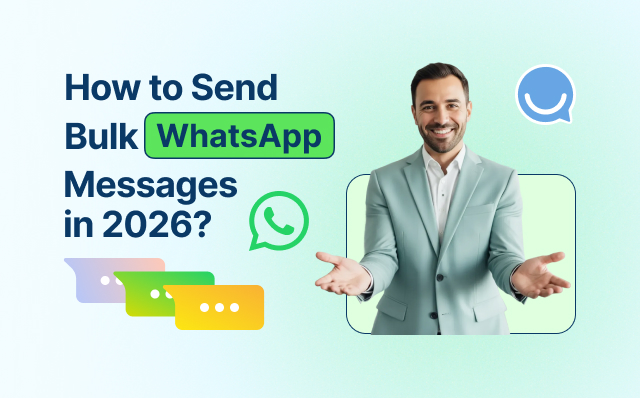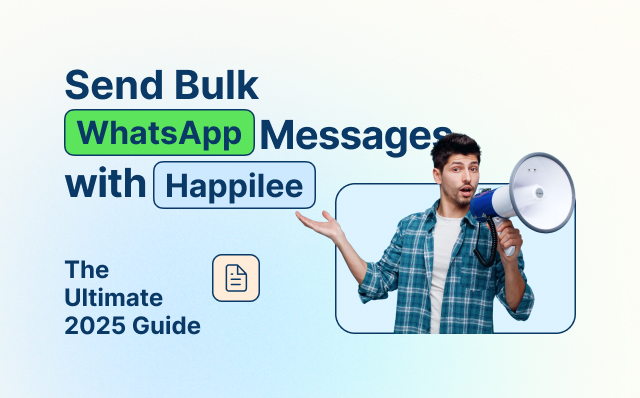Introduction
With WhatsApp Channels, businesses are able to communicate directly with their audiences, resulting in excellent results. To use them effectively, it’s important to understand and navigate their limitations. Today’s digital landscape allows businesses to harness WhatsApp Channels to foster customer engagement and drive growth by respecting user privacy, adhering to policies, and being aware of automation.
What are WhatsApp Channels?
WhatsApp Channels are essentially business accounts on WhatsApp. By using them, organizations can establish a professional presence and engage their customers more effectively. There are several distinctive features of WhatsApp Channels:
- Verified Business Account: WhatsApp verifies business accounts, which adds credibility and trust to your brand.
- Broadcast Lists: Businesses can send broadcast messages to multiple recipients, keeping customers informed of updates, promotions, and announcements.
- Two-Way Communication: WhatsApp Channels allow for two-way communication, as opposed to traditional broadcast media. Customers can easily respond to messages, ask questions, or request assistance.
- Rich Media Sharing: This feature allows you to share images, videos, PDFs, and other rich media formats with your customers.
How WhatsApp Channels Work?
WhatsApp Channels operate on the same infrastructure as the regular WhatsApp application, but offer business-specific features and capabilities. Here’s how they work:
- Account Setup: To get started, a business needs to set up a WhatsApp Business Account. This can be done by either creating a new business account or converting an existing personal WhatsApp account into a business account.
- Verification: WhatsApp verifies business accounts to confirm their authenticity. Verified business accounts receive a green checkmark badge, indicating to users they are engaging with a legitimate company.
- Opt-In Process: WhatsApp Channels are based on the principle that businesses must obtain explicit consent from users before sending them messages. Users must initiate the conversation or explicitly consent to receive business messages.
- Communication: Once users have opted in, businesses can send them messages, updates, and promotional content. In many cases, the communication is two-way, allowing users to ask questions or request information.
- Broadcast Lists: WhatsApp Channels enable businesses to create broadcast lists. These lists allow businesses to send messages to multiple users simultaneously. However, these messages are sent individually to each recipient, preserving the privacy of the recipients.
- Rich Media Sharing: WhatsApp Channels support the sharing of various types of rich media, including images, videos, PDFs, and more. This enables businesses to create engaging and visually appealing content.
- API Integration: For more advanced use cases and automation, businesses can integrate WhatsApp Channels with third-party APIs or messaging platforms. This can streamline processes such as customer support and order tracking.
- Usage Analytics: WhatsApp Channels provide businesses with access to usage analytics and metrics. This data helps businesses gauge the effectiveness of their messaging campaigns and refine their strategies.
- Customer Support: Businesses can use WhatsApp Channels for customer support by providing real-time assistance to users who have questions or issues. This enhances the overall customer experience.
- Security and Encryption: WhatsApp is known for its end-to-end encryption, ensuring that messages and data shared between users and businesses remain secure and private.
- Regulatory Compliance: Businesses using WhatsApp Channels must adhere to local and international regulations related to data privacy and communication. Compliance is essential to avoid legal issues.
Businesses can use WhatsApp Channels as a powerful tool to engage with customers, but they also come with responsibilities. Keeping a positive relationship with customers and avoiding potential problems requires respecting user privacy, obtaining opt-in consent, and adhering to WhatsApp’s policies.
Benefits of WhatsApp Channels
- Personalization: WhatsApp Channels enable businesses to tailor their messages to specific customer segments, enhancing the personalization of marketing efforts.
- Direct Communication: With billions of active users, WhatsApp provides a direct line of communication to your target audience, ensuring that your messages reach their intended recipients.
- Cost-Effective: Compared to traditional SMS marketing, WhatsApp Channels can be more cost-effective, especially for international communication.
- Customer Engagement: WhatsApp fosters customer engagement through its real-time messaging capabilities, helping businesses build stronger relationships with their clients.
- Verified Identity: The verification process adds a layer of authenticity and trust to your business, reducing the likelihood of impersonation.
Limitations of WhatsApp Channels
While WhatsApp Channels offer several advantages, they come with their own set of limitations that businesses need to consider:
- Privacy Concerns: WhatsApp is known for its commitment to user privacy, which can restrict some marketing tactics. For example, you cannot send unsolicited messages to users who have not subscribed to your channel.
- Limited Automation: Unlike email marketing platforms, WhatsApp Channels do not support advanced automation features. Sending messages in bulk or at specific times can be challenging without third-party tools.
- Usage Policies: WhatsApp has strict usage policies, and businesses must adhere to them to avoid being banned or restricted. Violations can result in your channel being suspended or permanently banned.
- Opt-in Requirement: Businesses must obtain explicit opt-in consent from users before sending them messages on WhatsApp, which can limit the size of your subscriber base.
- International Regulations: Depending on your target audience and location, you may need to navigate various international regulations related to data privacy and communication. This can be complex and requires legal compliance.
- Platform Dependency: Relying heavily on WhatsApp Channels makes your communication strategy dependent on a single platform. Changes in WhatsApp’s policies or user preferences can have a significant impact on your outreach.
Conclusion
WhatsApp Channels have changed the way businesses communicate with their audience, offering a direct and personal connection that can yield excellent results. In order to use them effectively, it’s important to understand and navigate their limitations. Businesses can leverage WhatsApp Channels to foster customer engagement and drive growth in today’s digital landscape by respecting user privacy, adhering to policies, and being mindful of automation.
For WhatsApp API solutions, consider Happilee, a reliable WhatsApp API provider.


